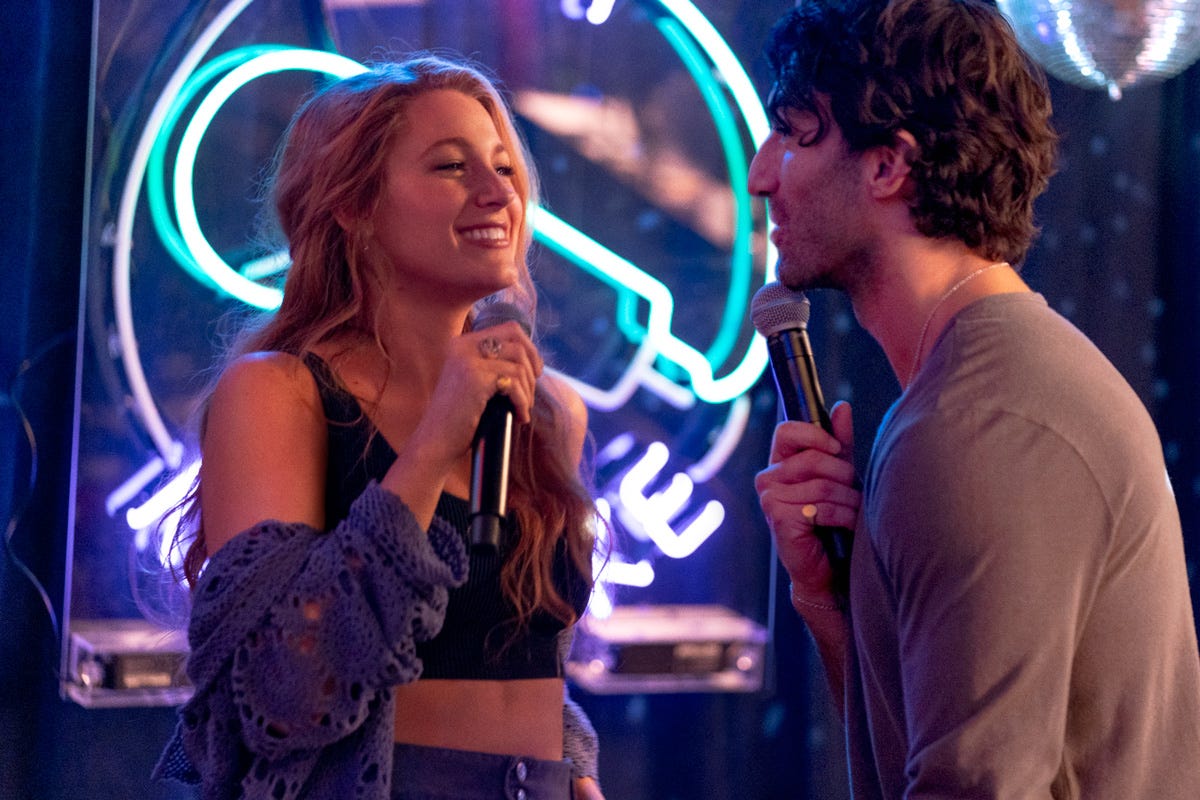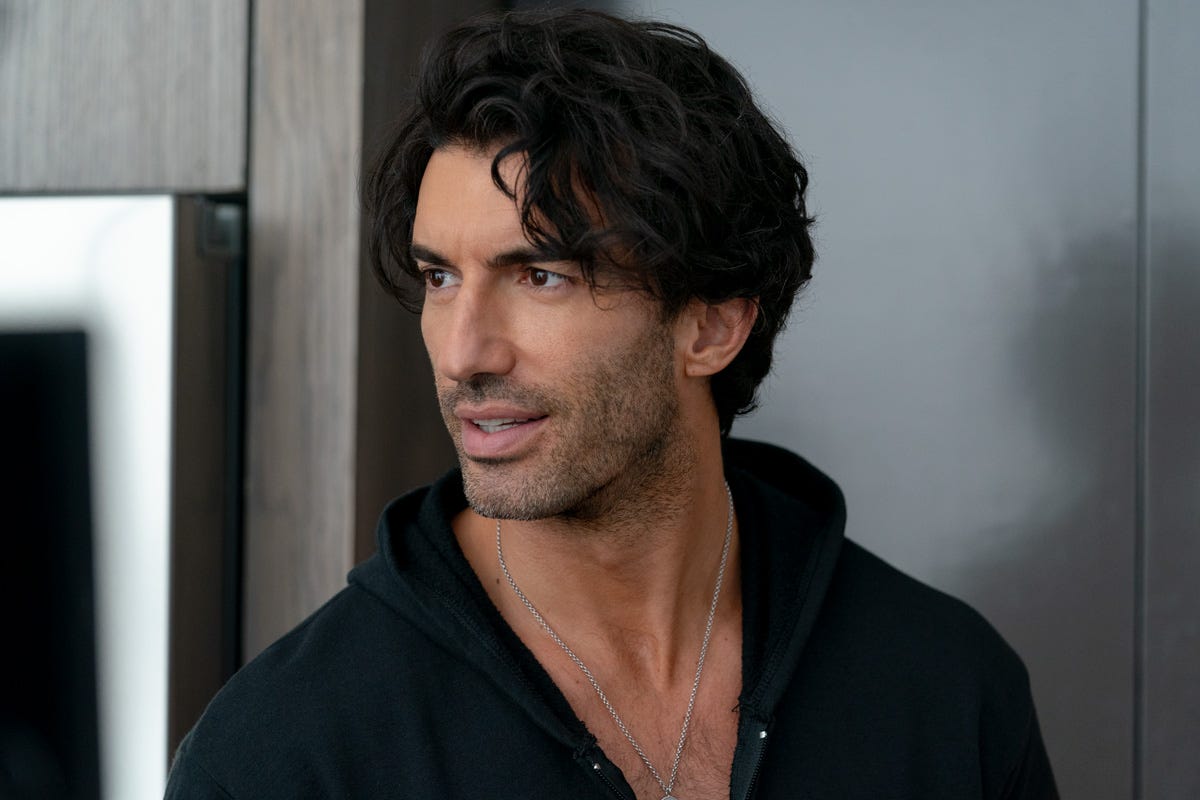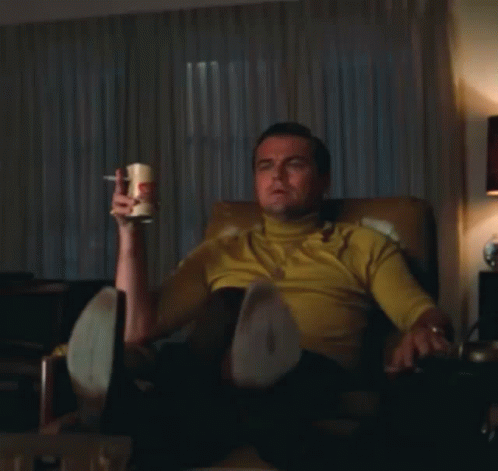I Think I Understand Why People Were Mad About 'It Ends With Us'
Blake Lively stars in a rom-dram that is also an after-school special, but also kind of good?
Welcome to The #Content Report, a newsletter by Vince Mancini. I’ve been writing about movies, culture, and food since I started FilmDrunk in 2007. Now I’m delivering it straight to you, with none of the autoplay videos, takeover ads, or chumboxes of the ad-ruined internet. Support my work and help me bring back the cool internet by subscribing, sharing, commenting, and keeping it real.
—
The last time I wrote about It Ends With Us, the Blake Lively-starring movie adaptation of Colleen Hoover’s bestseller, it was to discuss it becoming an old-school kind of hit (mid-budget movie aimed at adults that earns out, partly thank to a likable star). Through the magic of the Google lottery, that post has since gone on to become the most popular one on this site. I’m not really sure why. I try not to think about it too much.
The only other thing I remembered about it was that Lively and co-star/director Justin Baldoni were supposedly feuding on the set and afterwards — according to TMZ, because Baldoni had to lift Lively up for a scene, and he was worried about his bad back, and so he tried to find out how much she weighed from his trainer, which she found out about and didn’t appreciate. A+ feud story, that. “Ay, Doc, tell it to me straight: how heavy ya think this broad is? I gotta do some more deadlifts or something?”
Fast-forward to last night, when I was looking for a new movie to watch. As I scrolled past It Ends With Us in the new movies on Prime (you can also watch Kneecap there, it’s fun) my wife quickly piped up “oh, I wanted to see that!” (apparently she’d read the book). That seemed as good an excuse to rent it as any, and so I did. My wife promptly fell asleep about five minutes into the movie and that is marriage in a nutshell.
I watched the entire movie though, and I think I understand some of the controversy surrounding it — at least, the part that actually had anything to do with the movie. It is, in most ways, a juicy, slightly soap opera-y but largely above-average “chick lit” adaptation with great acting and competent shooting. And yet, for all the airport fiction trappings (which it mostly transcends but is still bound by), it does seem almost engineered to piss off just about everyone in the end.
Blake Lively plays the protagonist, Lily, who we meet when she’s attending the funeral for her father. Her mother (Amy Morton), challenges her to write “five things you loved about your father” for the eulogy. Lily gets up on stage to deliver her speech, but when she opens the napkin with the five things written on it, we see she hasn’t actually written anything. Like B Rabbit’s first rap battle at the shelter, there are a few minutes of awkward silence before she sits down without saying a word. Later we find out through flashbacks that her father (played by Kevin McKidd, aka Lucius Vorenus from Rome) was physically abusive to her mom growing up.
Trying to unwind with a rooftop cigarette after her funerary choke act, Lily has what passes for a meet-cute with a curiously intense dude who shows up on the roof deck shoving chairs. She finds out he’s actually a neurosurgeon named “Ryle Kincaid,” a name and profession she finds hysterically funny, laughing at the absurdity of it before we can. “I thought you were a crypto bro or something,” she says.
It’s sort of funny, but mostly true. Baldoni has one of the most terminal cases of soap opera face I’ve ever seen, and for about his first five minutes of screentime, all I could focus on was whether he’d had bottom lip injections or if it just looked that way because of the black facial hair he has lining his bottom lip. It looks like someone tried to highlight his mouth with a sharpie. It’d be unnerving, even if the character he’s playing wasn’t offputtingly intense. Ah, but it’s not his fault! It turns out “Ryle” was upset because he just had to operate on a six-year-old whose brother shot him in the head while playing with the family gun. See? He’s only an intense weirdo because he cares too much.
To lighten the mood, Lily reveals that her full name is “Lily Blossom Bloom” and that her life’s dream is to open a flower shop. Again they have a laff (making fun of her own writing seems to be either Colleen Hoover or screenwriter Christy Hall’s signature move). “Your turn,” Lily says. “Tell me something that would shock me.”
“I want to have sex with you,” Ryle says. Which feels like he misunderstood the assignment, because a guy wanting to have sex with Blake Lively seems wildly unshocking. All he had to do was banter a little, but instead he was like “Durrr, let’s fuck.”
God help her, she still seems interested. They end up kissing a little, but then he gets a call about having to do more neurosurgery and so kissing is as far as it goes. Which seems to be mostly for the best, because this dude’s energy is all unrelentingly earnest intensity, exactly the kind of person you should never trust.
They go off to live their separate lives. Lily buys her future flower shop in Boston, and almost as soon as she’s cracked the door to this abandoned retail space for the first time, a kooky best friend type played by Jenny Slate shows up at the door. Immediately, she barges in and is like “Oh my God, a flower shop? Can I work here and become your best friend?”
And Lily is like “OMG yah!” and with no discussion of hours or salary, Lily and Alyssa are thick as thieves before you can say “vanilla latte.” (Genre rules dictate Lily needs a supportive hilarious BFF so it’s mostly for the best that the script doesn’t spend too much time trying to justify any of this).
But then Alyssa invites Lily to meet up with her boyfriend and brother for a hockey game, and guess who Alyssa’s brother turns out to be? That’s right, Ryle Kincaid, the pouty neurosurgeon whose name is Kyle with an R (“Alyssa” really dodged a shitty name bullet there). Ryle and Lily naturally pair off, having more intense conversations, exchanging more shocking truths. “I lost my virginity to a homeless guy,” Lily reveals, one of the best “two truths and a lie” nuggets I’ve ever heard.
“Yeah, and his name was ‘Atlas,’” she adds.
OH, DOES SOMEONE ELSE IN THIS MOVIE HAVE A SILLY NAME?? CRAZY!
There’s a flashback to high school Lily (Isabella Ferrer, who’s actually 24 but does a shockingly accurate Blake Lively impression), who sees a guy in a beanie and waxed trucker hat climb out the plywood window of an abandoned dwelling across the way. He turns out to be a hobo with a heart of gold hiding out from his mom’s abusive boyfriend. Lily, being a woman, automatically thinks “I can fix him!”
They fall in love, and she teaches him to plant flowers. “The roots are the most important part of the plant,” she tells him, which sounds scientifically dubious, but he buys it. They start having sex, but Lily’s father catches them doing it, beats Atlas half to death, and he runs away to join the Marines and they never see each other again. That old story.
Fast forward to the present, and Ryle, with his wide-set eyes that look like someone cross-bred Sid from Ice Age with Fabio, is still laying things on extra thick. “Love bombing,” I believe it’s called. Alyssa tries to warn Lily that Ryle is a womanizer, but as we’ve established, Lily loves a project. Of course they fall in love and he puts aside his womanizing ways. For her.
Through it all, Ryle is like Chekhov’s Creep. You know instantly that something is off about this guy and you spend all of their scenes together wondering when the other shoe is going to drop. It’s a credit to Baldoni for knowing himself well enough to cast himself this way, and to play this character with unmistakeable ick without ever overplaying it. You know it’s there, but you can also talk yourself into thinking that maybe it’s not, which is basically the whole idea.
When he tells Lily he loves her, he says “and it’s not like I don’t have other options. I’m a ripped neurosurgeon!”
They laugh. “And I’m rich!” Ha ha ha! This is what women on the dating apps mean when they say they want a guy with a sense of humor.
Things are going great until one day he’s making a frittata (not a euphemism) and it starts to burn, and so he rushes to take it out of the oven. But just as Lily yells “Wait, it’s hot!” he grabs the casserole dish with his bare hand (idiot move, but I’ve done that myself at least five times). He yeouches his burnt hand away from the hot glass and in the process, accidentally backhands Lily across the face. Yikes. Always a bad move when you give your significant other a black eye. But, just an unfortunate accident. …Right?
That night they decide to go check out Boston’s hottest new restaurant, Root (which is a great euphemism if you’re Australian). The manager comes over to check on their table, and in another of It Ends With Us’s many insane coincidences, he happens to be… a grown-up Atlas (Brandon Sklenar)! The virginity-stealing homeless boy with a heart (and dick) of gold! And he clearly remembered the thing about roots!
Lily is taken aback, but tries to play it off. The second time Atlas comes to the table, he notices Lily’s black eye, and Ryle’s bandaged hand, and immediately goes Hulk mode. In the middle of their dishware-shattering near-fistfight, Ryle deduces that this guy is Atlas. “Is this the scumbag you wasted your virginity on??” Ryle yells, while being dragged away.
Lily is now in a bit of a pickle. Her true love is back, he’s clearly still interested in her, and he’s a restaurant owner. That everyone is effortlessly rich and successful (including Jenny Slate, whose husband played by Hasan Minhaj, is a rich tech bro bankrolling her flower shop assistant dillettantery) is another trope of the genre. Easier to focus on relationship stuff when no one’s too concerned about bills to pay. Atlas being successful now, it’s not as if Lily is being forced to choose between love and money either. It’s more like new love and lots of money, vs. first love and presumably slightly less money. Call it an aspirational conundrum. And yet a conundrum all the same.
Ryle is rightly a little insecure about having this homeless virginity thief, now a handsome bohemian restaurant owner, just hanging around in the same town like the proverbial dick in a glass case. He asks Lily if she still loves Atlas, and she keeps avoiding the question. Uh oh. Bad sign, dude. Run. He keeps pressing. Do! You! Still! Love him! Finally Lily explodes, “I don’t know!”
At which point Ryle storms off, understandably freaked out by all this. Lily chases after him. “Come back, come back!” and all of that. He’s still in his feelings and intent on leaving as she follows him into the stairwell, trying to grab him. As she tries to physically pull him back into the conversation, she trips and falls down the stairs and bonks her head. She comes to with Ryle compassionately cleaning and bandaging her split-open forehead (being a neurosurgeon coming in handy here). “Take it easy. You fell down the stairs.”
If at this point you’re thinking, “Wait, so she keeps hurting herself during emotional situations with her boyfriend, but it’s always somehow her fault? That sure sounds like the excuses a battered woman makes for her abusive partner.”
Ding ding ding! You have correctly surmised the twist of It Ends With Us. Only it isn’t exactly predictable, because through an hour 25 of the movie, it’s still plausible that Ryle is more-or-less good guy (albeit one who calls himself a “ripped neurosurgeon”) who’s just been the victim of strange coincidences. And this in a movie that is full of wild coincidences (accidentally hiring your creepy crush’s sister, just ending up at the restaurant owned by the guy you lost your virginity to, etc).
It’s not until after they’re married and Ryle discovers Atlas’s phone number hidden inside Lily’s phone case (another coincidence I’m not even going to go into) that Ryle’s true colors come out. He sexually assaults Lily in an intense sequence, and through another series of flashbacks, it dawns on her that those previous accidents might not have been so accidental.
At this point, I wondered whether his abusiveness was the only thing Lily had misread. Pretty much everything about Ryle’s neurosurgeon life seems fake. Has a real neurosurgeon ever referred to himself as “a ripped neurosurgeon?” Do they really pick up the phone and go “Ah, more neurosurgery? Now?” For a few minutes I thought that this was going to turn into a full-on Dirty John situation and I was thrilled, because it would’ve explained so much. But It Ends With Us doesn’t play it quite that far.
Lily runs away, going to the only safe place she can think to go to: you guessed it, Atlas’s house. He was exactly the dick in a glass case Ryle feared all along. Luckily for Lily, Atlas really is still the good guy she always assumed — that part at least wasn’t in her head.
Atlas takes Lily to the hospital to get treated for her injuries, and in the least shocking twist of all, it turns out that Lily is pregnant. With Ryle’s baby! I know it’s probably offensive to countless former partners of abusers who love their children in spite of the fathers, but Lily seems to give terminating this pregnancy far less thought than maybe it deserves. Does she really want to give this abusive creep more reason to be part of her life? Bad call! But I get it, sort of! Maybe they didn’t want to double down on hot button issues so soon after a pretty intense sexual assault scene.
Atlas, being the terminal Good Guy From A Chick Lit Novel he is, never presses Lily on it. And they don’t immediately ride off into the sunset together, to the story’s credit. There’s some kind of time lapse to avoid giving the impression that she merely jumped from one romance-novel protagonist cliché (the ripped neurosurgeon) to another (the Earthy restaurant owner guy who only has eyes for his first love). Tasteful.
In the final (or almost final) scene, Ryle shows up to see the daughter to whom Lily has just given birth. Yes, we learn, Lily has both let Ryle know that she was carrying his child, and allowed him to visit them in the hospital room, which ought to make your skin crawl. And yet, we soon learn it was all for a purpose.
As Ryle looks into his daughter’s eyes and declares himself a changed man, admits he has a problem, promises to seek help, begs Lily to take him back, and blah blah blah, it sets up the line for which this entire story basically exists. Lily asks him to look into his daughter’s eyes, and ask him what he would tell her if she ever asked him whether she should stay with a guy who hurts her. Who hits her and makes her believe it was her fault. Who pins her down while she’s begging him to stop.
“I’d tell her to leave him. And I’d beg her to never go back,” Ryle admits tearfully.
As he walks out the door, Lily tells her newborn, “That’s right, babe. It ends with us.”




